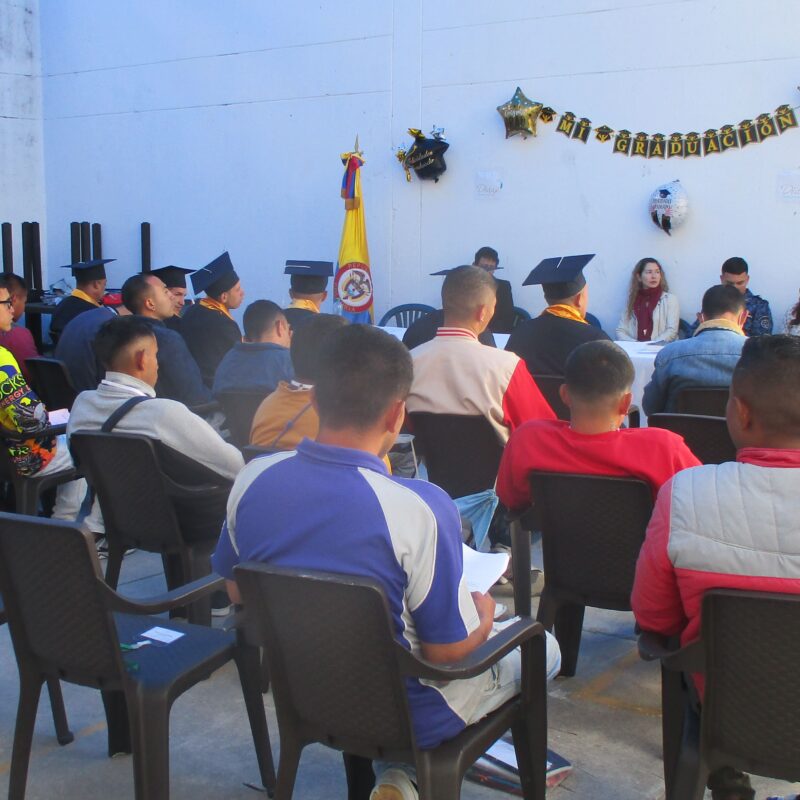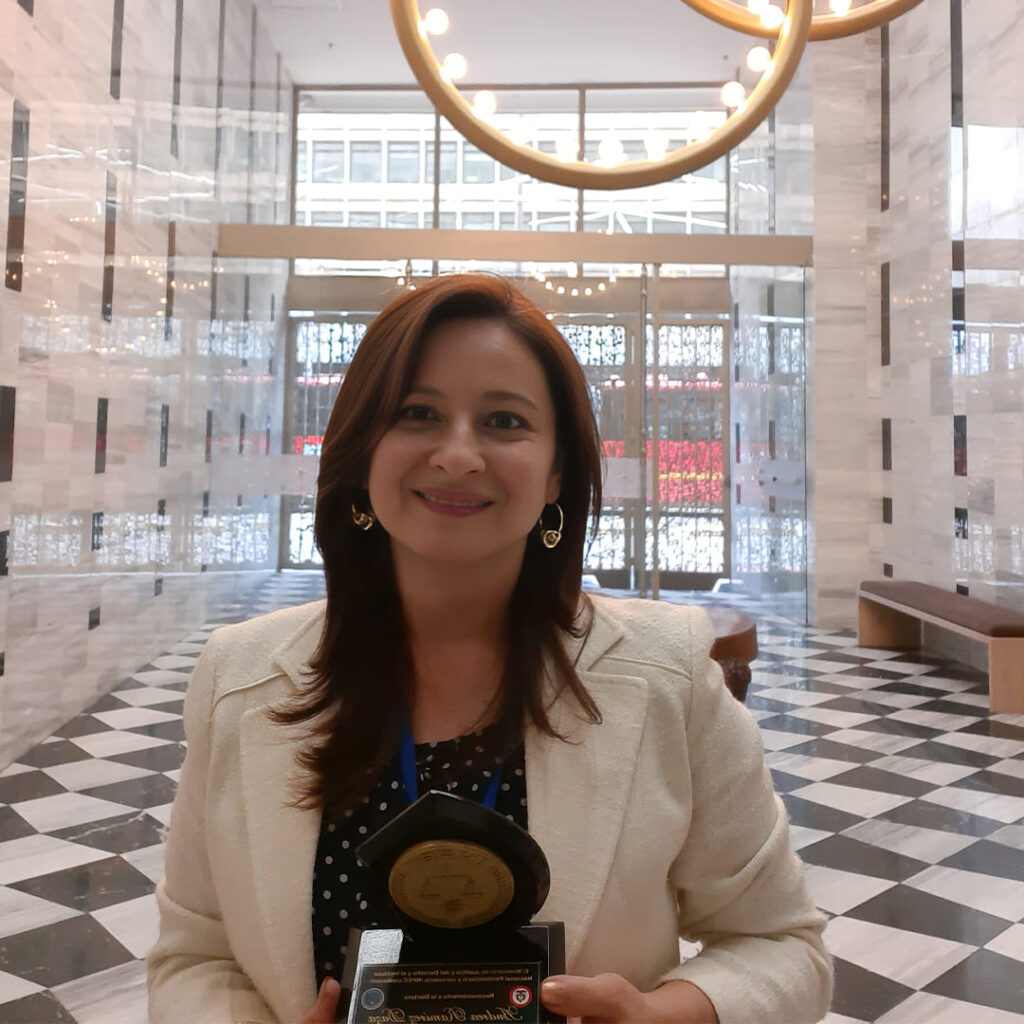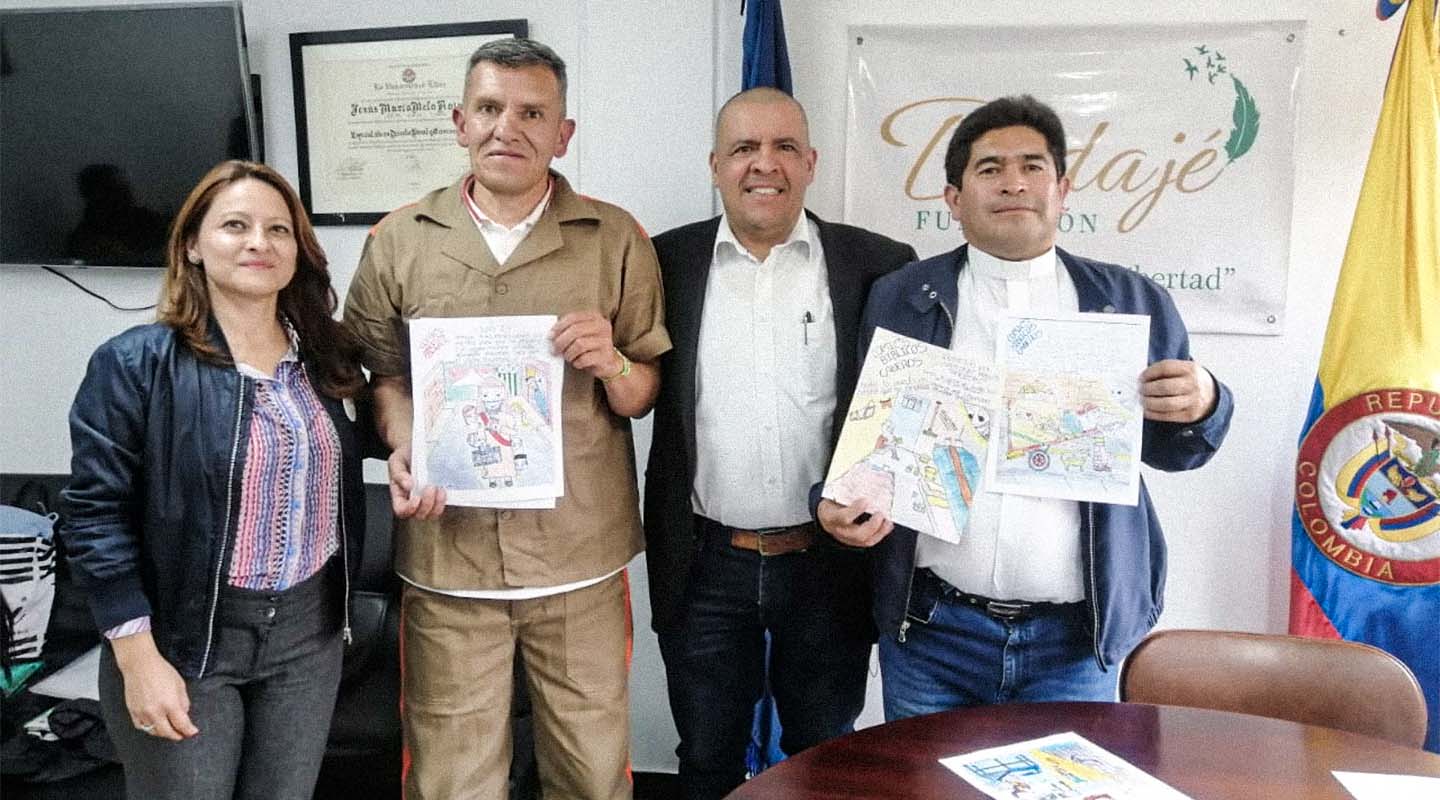The non-profit Foundation Didajé Center for Research and Teaching was established in Bogotá, Colombia on January 25, 2018, with the purpose of supporting the resocialization and dignity processes for people deprived of liberty in penitentiary centers. Its founder Andrea Ramírez Daza, who since 2000 began Biblical Theological teaching processes with this population, saw the need to systematize her teaching experience gained through many years in both university and penitentiary settings, developing an education program “On the Road to Freedom,” which, based on Biblical Theology, Psychology, and Art, aims to open a path of teaching that dignifies, restores, and teaches human beings to live in freedom.
Who We Are

History
This resocialization work has received various recognitions, including one granted by the Ministry of Justice and the National Penitentiary Institute of Colombia (INPEC) in 2021, and the Father Diego Jaramillo Cuartas Award from Uniminuto University Corporation in 2022. Currently, Didajé is present in different penitentiary centers across the country, including: La Picota, El Buen Pastor (women’s prison), Distrital, Santa Rosa de Viterbo in the department of Boyacá, and soon in prisons in Panama.
This program “On the Road to Freedom,” from a comprehensive anthropological perspective, observes how human beings along with their families are dehumanized, living their deprivation of liberty locked in guilt, anger, and hopelessness as a consequence of their decisions and under a penal system that still conceives prison as a place of confinement and punishment.

Director of Didajé Foundation
Needs We Address
The resocialization of people deprived of liberty requires offering them the best conditions for building their new life project, but overcrowding, consumption of psychoactive substances, lack of resources to develop knowledge for their future employment, difficult access to physical and mental health, and regarding their spiritual life, a need for programs with theological-biblical foundations to achieve attitudinal changes and a new way of thinking to know how to face the consequences of their mistakes.
These skills are valuable coping strategies for their resocialization, which are reflected in the ability to make new decisions, improve their relationships with their social context both inside and outside prison walls, and resilience to build a new life project in the midst of such a hostile prison environment. As a Foundation, we want to respond to two of these needs: on one hand, to support their spiritual growth through courses with a theological-biblical and hermeneutical component that allows them to establish solid foundations for their faith experience.

On the other hand, to offer psychosocial coping strategies to prevent and improve mental health problems; emotional instability is a factor that every person deprived of liberty experiences. Through our emotional psychoeducation seminars, this population manages to alleviate emotional burdens such as low self-esteem, guilt complex, learned helplessness, anxiety, depression, among others. This translates, in the prison environment, into this population recognizing their own emotions and those of others, not only to cope with life in prison but also to be an instrument of reconciliation and pacification in their prison environment and later in society outside the walls.
Mission
To develop resocialization programs for the prison population, based on Biblical Theology, Psychology, and Art, in order to establish their faith experience and their knowledge in emotional coping skills, a path of restorative justice that allows them to impact their social environment, supporting teaching processes for prison, post-prison, educational, and organizational populations.
Vision
Didajé aims, through its emphasis on research and teaching in the Latin American prison context, to be a source of knowledge for organizations framed in the ecclesiastical, educational, academic, penitentiary, and organizational fields that are interested in developing dignification and resocialization processes for the prison population; a path of education based on restorative justice.
